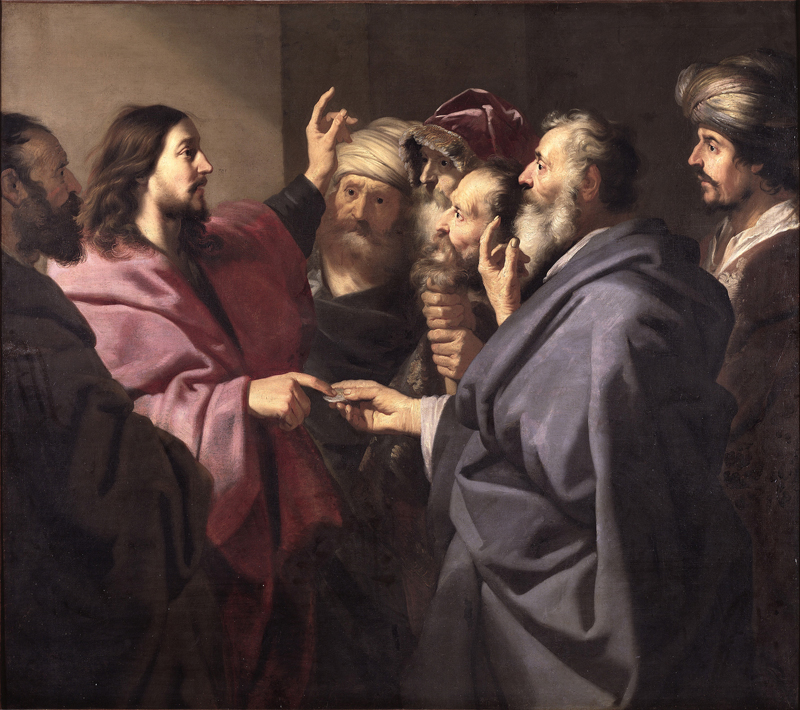
Tribute Money
Jacob Adriaensz. Backer, 1633
Dear friends,
In the story from Matthew 22:15-22, we see the Pharisees and Herodians trying to trap Jesus by asking him whether it is lawful to pay taxes to Caesar. Jesus responds by asking them to show him the coin used to pay the tax, and then asking them whose image is on the coin. When they reply that it is Caesar's image, Jesus famously says, "Render unto Caesar the things that are Caesar's, and unto God the things that are God's."
This response is often interpreted as a call for a separation of church and state, but I believe that it is more nuanced than that. Rather, I think that Jesus is making a deeper point about the relationship between the material and the spiritual realms.
It is important to understand that politics and religion are not separate domains. Rather, they are intimately connected, and the principles of compassion, wisdom, and nonviolence that are at the heart of our spiritual practice should also guide our political actions.
This is not to say that we should seek to impose our religious beliefs on others, or that we should use politics as a means to promote our own religious agenda. Rather, it is to say that we should approach politics with a deep sense of moral responsibility, recognizing that our actions have consequences for the well-being of all beings, and that we have a duty to act in a way that is consistent with our deepest values and aspirations.
It is important to realize that everything is interdependent, and that nothing exists in isolation. This means that the material world and the spiritual world are not separate domains, but rather two aspects of a single reality. In this sense, when Jesus says "Render unto Caesar the things that are Caesar's, and unto God the things that are God's," he is not calling for a separation of the two, but rather for a recognition that each has its own place in the grand scheme of things.
We should not become so attached to the material realm that we forget about the spiritual realm, nor should we become so focused on the spiritual realm that we neglect our responsibilities in the material world.
So, dear friends, let us take this story as a reminder of the importance of acting with moral responsibility in all domains of our lives, and of the interdependent nature of all things. Let us strive to embody the principles of compassion, wisdom, and nonviolence in our political actions, as well as in our spiritual practice, and let us work to create a world that is more just, peaceful, and compassionate for all beings.